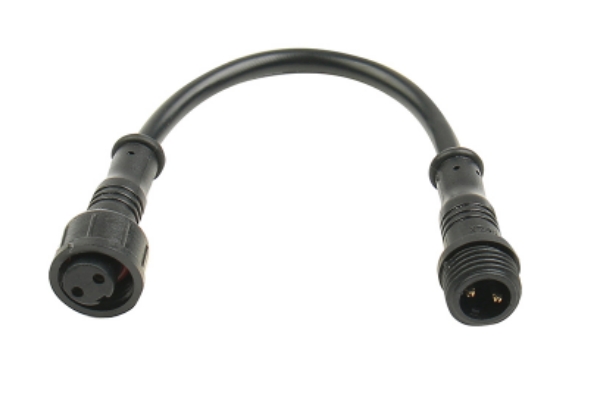News


News

IP67 2-Pin Connector: Waterproof and Dustproof Principles & Structural Design
Release time:2025-05-12
viewed:381
In demanding environments such as industrial automation, outdoor lighting, and automotive systems, electrical connections must withstand exposure to water, dust, and mechanical stress. TheIP67 2-pin connector is a critical component designed to ensure reliable performance under harsh conditions. This article explores the waterproof and dustproof principles behind IP67-rated 2-pin connectors, their structural design, and key considerations for optimal performance.

The IP (Ingress Protection) rating defines a connector’s resistance to foreign objects and moisture. An IP67 2-pin connector offers:
Dustproof (IP6X): Complete protection against dust ingress.
Waterproof (IPX7): Can withstand temporary immersion in water up to 1 meter for 30 minutes.
This makes IP67 2-pin connectors ideal for applications like solar power systems, marine electronics, and industrial sensors.
The primary defense against environmental factors is the sealing system, which includes:
Made from silicone, EPDM, or nitrile rubber, these seals compress when the connector is mated, creating a watertight barrier.
O-rings are often placed around the connector’s mating interface to prevent water penetration.
The IP67 2-pin connector housing is designed with tight tolerances to eliminate gaps where dust or water could enter.
Threaded or bayonet locking mechanisms enhance sealing by ensuring a secure fit between male and female connectors.
The choice of materials impacts the connector’s resistance to environmental stress:
Nylon, PBT (Polybutylene Terephthalate), or stainless steel housings provide UV resistance and protection against chemicals.
Gold plating prevents oxidation, ensuring stable conductivity even in humid or wet conditions.
Some IP67 2-pin connectors feature internal O-rings for static sealing and external gaskets for dynamic sealing during mating.
Overmolded strain relief prevents water from wicking along the cable.
Cable glands with compression fittings enhance sealing at the entry point.
To achieve IP67 certification, connectors undergo rigorous testing per IEC 60529 standards, including:
Dust Chamber Test: Confirms complete dust resistance (IP6X).
Water Immersion Test: Submersion in 1 meter of water for 30 minutes (IPX7).
Mechanical Stress Tests: Vibration, shock, and mating cycle tests ensure long-term reliability.
Due to their robust design, IP67 2-pin connectors are widely used in:
Solar Power Systems – Resistant to rain and dust.
Automotive & Marine Electronics – Withstands splashes and temporary submersion.
Industrial Sensors & Robotics – Ensures stable connections in dusty or wet environments.
The IP67 2-pin connector is engineered for reliability in challenging environments through advanced sealing techniques, durable materials, and precision design. By understanding its waterproof and dustproof principles, engineers can select the right connector for applications requiring IP67 protection. As technology evolves, future IP67-rated 2-pin connectors will continue to improve in performance and versatility.